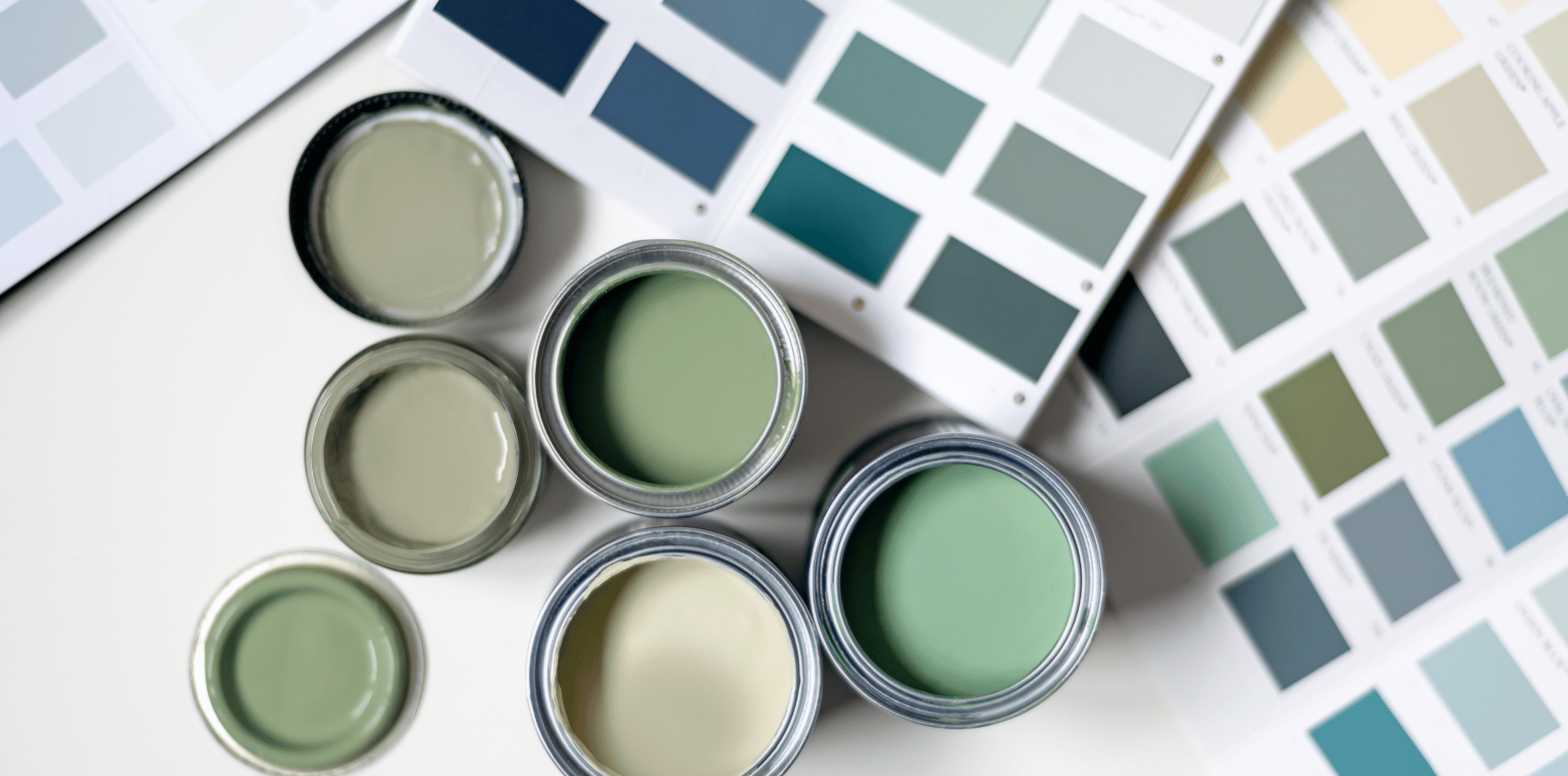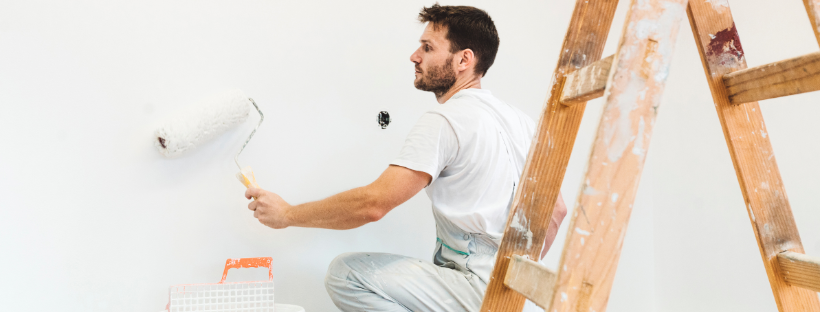The Science of Paint Selection: Quality and Sustainability Matter

The act of painting, whether it's refreshing a room's look or revitalising the exterior of a house, may seem like a straightforward endeavor. However, beneath the surface lies a complex world of science, innovation, and choices that can significantly impact not only the visual aesthetics but also the environment and health.
The science of paint selection delves into the intricacies of choosing the right paints, considering factors such as quality, durability, environmental impact, and health considerations.
Let's explore the science behind paint selection, emphasising the importance of quality and sustainability in creating beautiful and responsible living spaces.
Understanding Paint Components
At its core, paint is a carefully formulated mixture of various components designed to achieve specific properties.
Understanding these components is essential for making informed paint choices:
Pigments:
Pigments are responsible for giving paint its colour. They consist of finely ground particles that reflect and absorb light, resulting in the desired hue. High-quality pigments ensure vibrant, long-lasting colours.
Binders (Resins):
Binders are polymers that hold the paint's pigments together and adhere them to surfaces. The type and quality of binders determine the paint's durability, adhesion, and resistance to weather and wear.
Solvents:
Solvents keep the paint in a liquid form, allowing for easy application. Traditional paints use volatile organic compounds (VOCs) as solvents, which can emit harmful gases into the air during and after painting.
Additives:
Additives enhance the paint's properties, such as its texture, drying time, and resistance to mildew and fading.
They play a crucial role in achieving specific paint characteristics.

Quality Matters: Benefits of High-Quality Paint
Choosing high-quality paint goes beyond aesthetics; it impacts the longevity and overall performance of your painted surfaces:
Durability:
High-quality paints contain superior binders that ensure long-lasting adhesion and resistance to peeling, cracking, and chipping. This durability translates to reduced maintenance and touch-ups over time.
Vibrant Colours:
Premium pigments in high-quality paints result in rich, true-to-colour finishes that maintain their vibrancy over years of exposure to light and the elements.
Coverage and Finish:
High-quality paints typically offer better coverage with fewer coats, resulting in a smoother and more even finish.
This saves time and reduces the amount of paint needed.
Washability:
Quality paints are more washable and resistant to stains, making them ideal for high-traffic areas, kitchens, and spaces prone to moisture.
Sustainability in Paint Selection
As environmental awareness grows, the paint industry has responded with sustainable solutions that prioritize both the health of occupants and the planet:
Low-VOC and Zero-VOC Paints:
Traditional paints emit VOCs, which can contribute to indoor air pollution and health issues. Low-VOC and zero-VOC paints use water-based solvents or alternative solvent technologies that release fewer harmful chemicals.
Biodegradable Paints:
Some paints are formulated with biodegradable binders and pigments that break down naturally over time, reducing their impact on the environment.
Recycled Content:
Eco-friendly paints may incorporate recycled materials, such as post-consumer recycled content or reclaimed pigments, reducing the demand for virgin resources.
Water-Based Paints:
Water-based paints have a lower environmental impact compared to oil-based counterparts, as they emit fewer volatile organic compounds and are easier to clean up.
Choosing the Right Paint for Different Surfaces
Different surfaces require specific types of paint to ensure optimal adhesion and longevity:
Interior Walls:
For interior walls, latex or water-based paints are often recommended due to their low odor, quick drying time, and ease of cleaning. High-quality acrylic latex paints provide durability and a smooth finish.
Exterior Surfaces:
Exterior surfaces demand paints that can withstand weather conditions, UV exposure, and temperature fluctuations. Acrylic or latex paints with excellent adhesion and resistance to fading are suitable choices.
Wood Surfaces:
Wood surfaces benefit from paints with good flexibility and adhesion. Water-based acrylic paints or oil-based paints are commonly used, depending on the specific requirements of the project.
Metal Surfaces:
Paints formulated for metal surfaces offer protection against rust and corrosion. Rust-inhibiting primers and enamel paints are often used for durability and longevity.
Health Considerations in Paint Selection
Choosing the right paint isn't just about aesthetics—it also affects indoor air quality and occupant health:
Allergies and Sensitivities:
People with allergies or sensitivities may be particularly affected by VOCs emitted by traditional paints. Opting for low-VOC or zero-VOC paints can alleviate these concerns.
Asthma Prevention:
Poor indoor air quality can trigger asthma symptoms. Using low-VOC paints can contribute to healthier indoor environments, especially in spaces where vulnerable individuals spend time.
Pregnant Women and Children:
Pregnant women and young children are more susceptible to the effects of VOCs. Choosing paints with minimal emissions helps create safe and nurturing environments.

Tips for Responsible Paint Selection
Making responsible paint choices involves considering quality, sustainability, and health factors:
Read Labels:
Look for paint labels that indicate low or zero VOC content. Many paint manufacturers provide information about their products' sustainability and environmental certifications.
Research Brands:
Investigate paint brands known for their commitment to quality, sustainability, and responsible manufacturing practices.
Seek Expert Advice:
Consult with paint professionals or experts who can guide you toward the best paint choices for your specific project and requirements.
Test Samples:
Before committing to a large paint job, test paint samples on a small area to assess colour, finish, and adherence.
The science behind paint selection reveals that choosing the right paints involves more than just selecting appealing colours. Quality, durability, sustainability, and health considerations play pivotal roles in creating not only visually stunning but also responsible and safe living spaces.
As we become more conscious of the impact of our choices on the environment and our well-being, the paint industry has responded with innovations that align with these priorities.
By understanding the science behind paint components, considering the benefits of high-quality paints, embracing sustainable options, and factoring in health considerations, you can make informed paint choices that reflect your commitment to both aesthetics and responsibility.
In the intricate science of paint selection, the brushstrokes of innovation, quality, and sustainability combine to create spaces that are not only visually pleasing but also environmentally conscious and health-enhancing.




